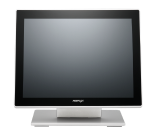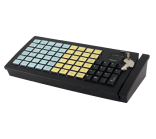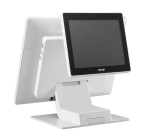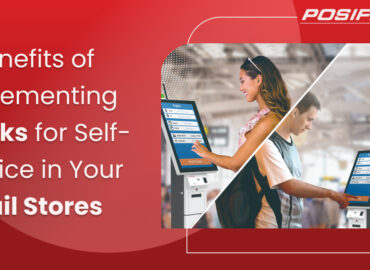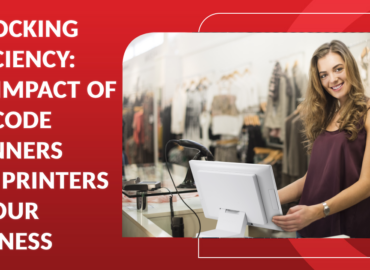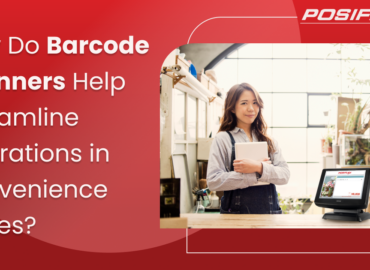All in one POS system
Are you a business owner looking for a POS system that is dependable and effective? Having the proper POS system is crucial for efficient operations and maximizing earnings in the rapidly evolving world of modern enterprises. You may have two possibilities when picking a POS system: all-in-one POS systems and custom POS systems. But how precisely do these two kinds of systems vary from one another? We will examine the differences between all-in-one POS systems and customized POS systems in this blog post to help you decide which one would be the best fit for your company. So let’s get started and explore the main distinctions between these two widely used POS system solutions.
Pros And Cons Of An All-In-One POS System
Comprehensive solutions and all-in-one POS systems combine different functionalities into a single system. Features like point of sale, inventory management, customer management, reporting, and analytics are frequently included. All-in-one POS systems have advantages and disadvantages like any other technology solution. Let’s examine some of the benefits and drawbacks of adopting a POS all-in-one system for your company.
Pros of an All-in-One POS System:
Simplified Setup and Management: An all-in-one POS system relieves you of the hassle of connecting numerous hardware or software components. It is simpler to set up and manage because everything is integrated into a single system.
All-in-one POS systems frequently include built-in interfaces with various payment gateways, accounting programs, and other company tools. Your operations may be streamlined, and you could manage your business operations more effectively.
Unified reporting and analytics are made possible by having all your data in a single system. You can learn more about revenue, inventory, customer behavior, and other vital indicators from a single dashboard.
Cost-Effective: Since all-in-one POS systems sometimes provide bundled pricing for numerous capabilities, they can be less expensive than custom solutions. It can reduce both one-time and continuing costs.
Cons of a POS system that is all-inclusive:
Limited Customization: All in one POS system is a ready-made solution that might not perfectly fit your company’s particular requirements. Your options for customization can be limited, and you might need to modify your procedures to work with the system’s capabilities.
Scalability Issues: As your company expands, you could need more sophisticated capabilities or different integrations not offered by an all in one POS machine. It may restrict the system’s ability to scale, necessitating a more reliable solution.
All-in-one POS systems have the potential to have overlapping functionality that you might not need, which could make your operations more complicated and confusing than necessary.
Dependence on One Vendor: If you use an all-in-one POS system, you can depend on one vendor for maintenance, upgrades, and support. Your business operations may be impacted if the vendor has problems or ceases operations.

Advantages And Disadvantages Of A Custom POS System
Custom POS systems are made-to-order solutions for a business’s requirements. They are often created from the ground up by a software development team to match a firm’s unique needs and work processes. Custom POS systems have benefits and drawbacks, much as all-in-one POS systems. Let’s look at a few of them:
Benefits of a Special POS System:
Custom POS systems are created expressly to match your business’s procedures, needs, and identity. They are tailored to your particular industry. It makes a smooth connection with your current operations and workflows possible, leading to a more effective and user-friendly system.
Flexibility and Scalability: Custom POS systems offer greater flexibility and scalability than all-in-one systems. Only the features and integrations pertinent to your business may be selected and implemented at your discretion. As your firm develops, this enables customization and expansion in the future.
Enhanced Security: POS systems specifically designed for your company’s security requirements can offer features like data encryption, user access controls, and bespoke security protocols. It can aid in protecting private customer and corporate information.
Greater Control: With a customized POS system, you have more control over the features, user interface, and overall user experience. Without relying on a vendor’s release schedule, you can make changes and upgrades whenever needed.
Here are a few drawbacks of a unique POS system:
Higher Upfront Costs: Since custom POS systems require custom development from scratch, they are often more expensive than all-in-one systems. Costs for initial creation, ongoing upkeep, and updates may be more significant.
Longer Development Time: Since a bespoke POS system must be designed, coded, tested, and debugged from the start, the process takes time. As a result, development times may be lengthier than if an all-in-one system were used.
Custom POS systems involve technical skills in software development, which may not be easily accessible internally. For the creation, upkeep, and updating of the system, hire or collaborate with a qualified development team.
Potential Integration Challenges: Integrating custom POS systems with other business tools like payment gateways, accounting software, or CRM systems may demand more time and resources. It can call for ongoing maintenance and updates and provide integration issues.

Why A Custom POS System Is A Better Option?
A custom POS system may be a superior choice for some firms, because of its distinctive benefits. First, a customized POS system may fit a company’s unique needs and work processes, allowing for seamless integration with current processes. As a result, the system becomes more effective and user-friendly, enhancing general productivity and customer service. Additionally, because custom POS systems are more adaptable and scalable, businesses may pick and choose exactly the features and connectors that are crucial to their operations. As the company expands, this gives space for customization and expansion without being constrained by the features of an all-in-one system.
A customized POS system gives you more control over the features, user interface, and overall user experience. Businesses can customize the design with complete autonomy, taking into account their branding and operational requirements. This level of personalization makes it possible to provide a distinctive and differentiating consumer experience, which might give you an edge over your competitors. Furthermore, customized POS systems can provide improved security measures adapted to the company’s particular security needs, shielding important customer and corporate data from potential intrusions.
Organizations that need a highly customized solution that perfectly matches their requirements, workflows, and branding may find a custom POS system preferable. Custom POS systems may be more expensive up front, take longer to develop, and require technical expertise. However, for companies that place a high value on customization and differentiation in their point-of-sale operations, the advantages of tailored functionality, flexibility, scalability, and control may outweigh these drawbacks.

